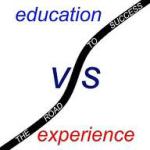A typical teenager has problems with staying focussed in class, staying focussed at home too, and like so many children in general, panics before tests and going back to school after a vacation break. Being a teacher for nearly a decade, I have seen many children and teens who hate school altogether and struggle to find the answers ‘they‘ are looking for when it comes to studying and succeeding in school.
Since having my own children, I started on a learning journey thinking about what I was like in school. I had a little ‘aha’ moment when I acknowledged the fact that I had a hard time in elementary school. I had my own issues staying focused in class, and back in the olden days they just started to discover links between behaviour and disabilities, and new and sure ways to teach children using skill based lessons and project work. Back then, kids like myself fell through the cracks, often classified as disruptive or unintelligent, but it is far from the truth. So many smart kids are being labelled early on and that stigma travels with them over a lifetime.
Intelligence is measured in many different ways. We know this by now. But back then what you scored on a test was the most important factor to determine how others treated you inside the class. Your label; smart kid, dumb kid, outgoing, funny, disruptive; labels hurt children, because as they grow they change, but a label sticks, and teachers treat them accordingly with those labels being passed down from one teacher to the next to help teachers make their own jobs easier. But imagine if we taught to the individual child, and left the labels at the door?
School was tough enough without those labels. I was young for my age and the youngest in my grade. I had a very sheltered upbringing and I was thought of as an ‘outsider’ by my peers for not knowing things that they knew about, like TV programs or trivial North American things like Kraft Dinner, and Twinkies. My parents didn’t take us to the library to take out books, or go to sporting events; nothing really happened in our very small protected world. Our experiences were pretty limited compared to the families that threw parties on the weekends, went camping, socialized and volunteered for church or the town hall. While other families drank and ate in fancy restaurants or socialized with neighbours, my family was lucky to have enough money to buy me a pair of running shoes.
Of course I grew up in an immigrant home which made things harder in school. First, my parents did not help with homework, ever, most likely because they couldn’t. And second my parents were always too tired from working morning until night to take us anywhere or do anything with us to learn from outside experiences. They also did not want the outside world to influence us at all. They wanted us to remain somewhat European.
Growing up, my family was a low-middle class working family, struggling to get by paycheck to paycheck.
We were rarely allowed to participate in extracurricular activities. Probably because we couldn’t afford them. They were not the parents driving to soccer games, gymnastic meets or the parents actively involved in the Parent Teachers Association meetings. They had a very outdated view of school that was influenced by the communist regime they grew up in. They believed that the responsibility of school fell solely on the school and not on the parents.
This gave me some issues in school of course. Without help, I had to rely on myself to learn things. I tried to understand what was going on in my head, and often watched what everyone else was doing and mimicked study habits and even handwriting. I liked doing pair work, and strived in groups. I analysed the class, and how they acted within our community, (I still remember all their names from 30+ years ago). It seems I was learning a different set of skills than the others. I was weighing out their personalities, and remembering the details of why they did things; the characters in my play, trying to predict behaviour. Apparently everyone else was learning Math and writing.
I did get to a point by Grade 9 where everything clicked into place and I figured out exactly what the teachers wanted. I finally bloomed, and my brain started working for me and not against me. The school system, in general, left a bad taste in my mouth about education, and that natural born desire to discover the world around me through books and learning, was extinguished.
It is funny how history repeats itself.
We put our own children in a similar situation. We made them immigrants by moving to a new continent, and of course we could not help them with their French homework either. In many ways by speaking English at home and not learning a reasonable level of French myself, I too preserved my own mixed ‘Third Culture‘ and then added another level to the confusion when we moved again in 2016 to Hungary.
Our intentions were different of course. We did not escape to survive the heavy handed Russian rule, a totalitarian government that did not allow freedom. No, we wanted to give the children a broader view of the world, a glance at possibilities from a different perspective. Nevertheless, moving is never easy.
Education should provide more than lessons, they should teach our children how to think.
I want my children to have a better education than I did; to have a first hand account of the world that only travel can give.
I can foresee big changes in the future for education. Probably because the children are changing and demanding more of us teachers.
This is what I have learned
There are 9 different types of intelligence: spatial, naturalist, musical, logical-mathematical, existential, interpersonal, bodily-kinesthetic, linguistics, and intra-personal, yet school only assesses academic intelligence which could be classified as logical-mathematical and linguistic intelligence.
Spatial (picture smart)- visualising the world in 3d
People who are strong in this area often see things visually, their place in the world and a general big picture kind of way.
Naturalist (nature smart), understanding living things and reading nature
These are the green thumbs among us, the ones who understand ingredients, the sun and the moon, and are in sync with the natural elements.
Musical (sound smart)- discerning sounds, their pitch, tone, rhythm and timbre
These are the musicians among us, who listen and repeat, who are good at hearing different sounds and the way they go together. They are the dancers and singers, the talented move makers, and songwriters. They share similar pattern as the Mathematical thinkers, yet they have a strong tie to emotions.
Logical-Mathematical (number and reasoning smart)- quantifying things, making hypotheses and proving them
There are the mathematicians, the logical thinkers, the ones that look for patterns in things and between things. They are strategic. They are the detectives, the mathematicians and the scientists living among us.
Existential (life smart)- tackling the questions of why we live, and why we die
These are the philosophers that try to make sense of the world, why we are here and the reasons behind it all.
It involves the ability to use collective values and intuition to understand others and the world around them. People who excel in this intelligence typically are able to see the big picture.
Interpersonal (person smart)- sensing people’s feelings and motives
These are managers, the ones who can get people to do things by understanding what makes them tick. They negotiate, problem-solve and share knowledge easily, They work well in teams and have strong verbal and written communications.
Bodily-kinesthetic (body smart) – coordinating your mind and your body
Body smarts are coordination, balance, dexterity, strength, flexibility, and speed. In other words, people who have highly developed body smarts tend to thrive in occupations in which they can be physical and move around.
Linguistic (word smart)- finding the right words to express what you mean
They have the ability to use language effectively, whether orally or in writing. They make good journalists, TV hosts, actors, public speakers and storytellers .
Intra-personal (self smart)- understanding yourself, what you feel, and what you want
People with intrapersonal intelligence are looking inward and trying to figure out their own feelings, motivations and goals. They are intuitive and usually introverted. They learn independently and through reflection.
Psychology and theology are often of interest to people with intrapersonal intelligence.
Yet with all these kinds of intelligence we focus on logical-mathematics and linguistic (word smart) and mostly through rote learning (memory work and retention).
If your child seems to be lagging in school, with below level results, perhaps they also think outside the normal school spectrum.
My son was diagnosed with a developmental delay and lagged in writing about two years paired with a gift, high IQ which comes with sensory issues; aka heightened senses to certain smells and acute hearing. We needed to identify his strengths instead of focussing on what he was having problems with. The teachers are very good inside the classic French system to point out faults, what students cannot do, and how they do not fit into the status quo but they rarely point out strengths to give the children wings to take their learning to new levels.
Once my son’s learning disability, or developmental delay was identified, we could now make a plan we could get excited about. We found solutions to his issues. We could then research ways to help him learn, and that is when we found the Auditory Integration Program.
First we had him tested; IQ, general memory skills, a vast amount of testing. Then, once we identified that although his symptoms in class pointed to ADD, it was his hearing that caused him to feel uncomfortable in the classroom environment. With heightened hearing he could not concentrate on the work, but the shuffling papers, the chatting, the children’s movements, and even the outside noises.
The centre for disabilities here in Budapest gave us a set of headphones and a program for him to listen to twice a day for twenty minutes over the course of two weeks. It changed his hearing substantially bringing his highs down and the lows up.
Auditory integration training (AIT), is a procedure pioneered in France by Guy Bérard. It typically involves 20 half-hour sessions over 10 days listening to specially filtered and modulated music. It was used in the early 1990s as a treatment for autism; it has been promoted as a treatment for ADHD but also depression, dyslexia, dysgraphia and a wide variety of other disorders.
What I know for certain, is that within a year my son had caught up to his class and not just average but doing great! He still has teachers who treat him as stupid and think it is all hogwash, but what I see is a boy determined to get past his own past to rewrite his future. He is the one to watch. I predict big things with this kid!
And the best part. He is a good person right to his core and very well rounded with many different talents.
If we focus more on the individual and figure out what they need, then every single child will find their own strengths as well, and become a success in their own lives. As teachers we need to do this, even if it is hard, because it is not about us, not really, it is about the future and the children heading into it. The least we can do is give them some tools.










